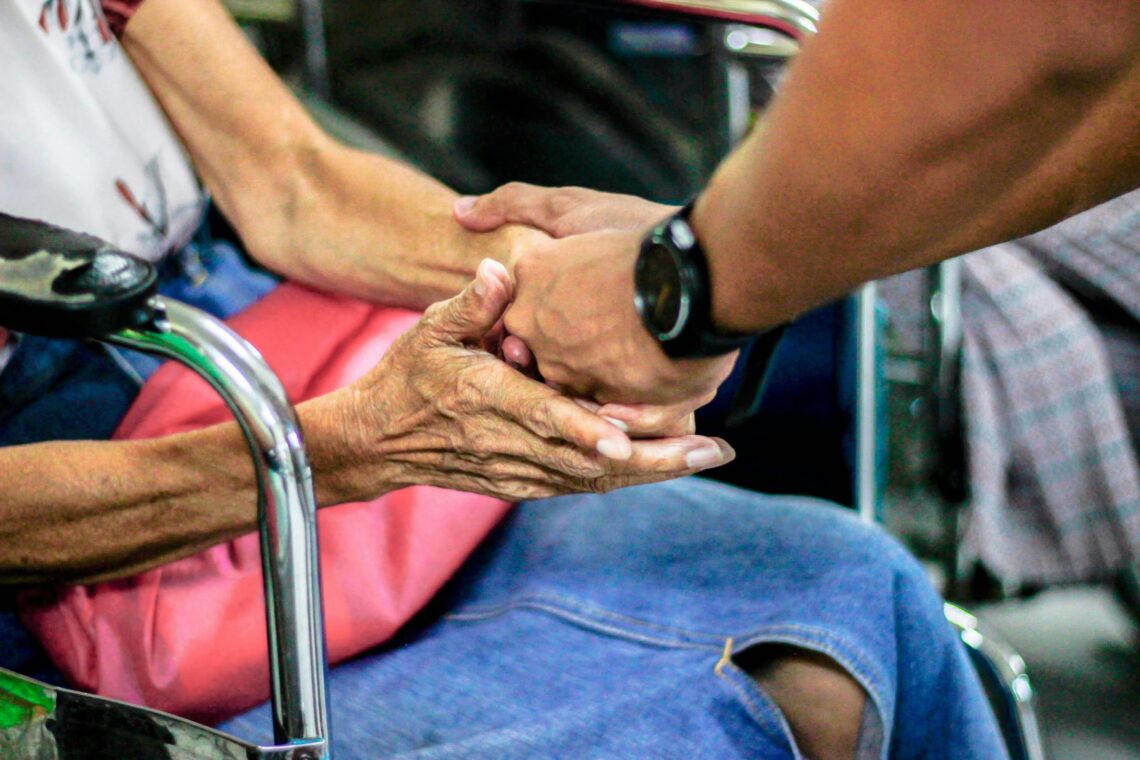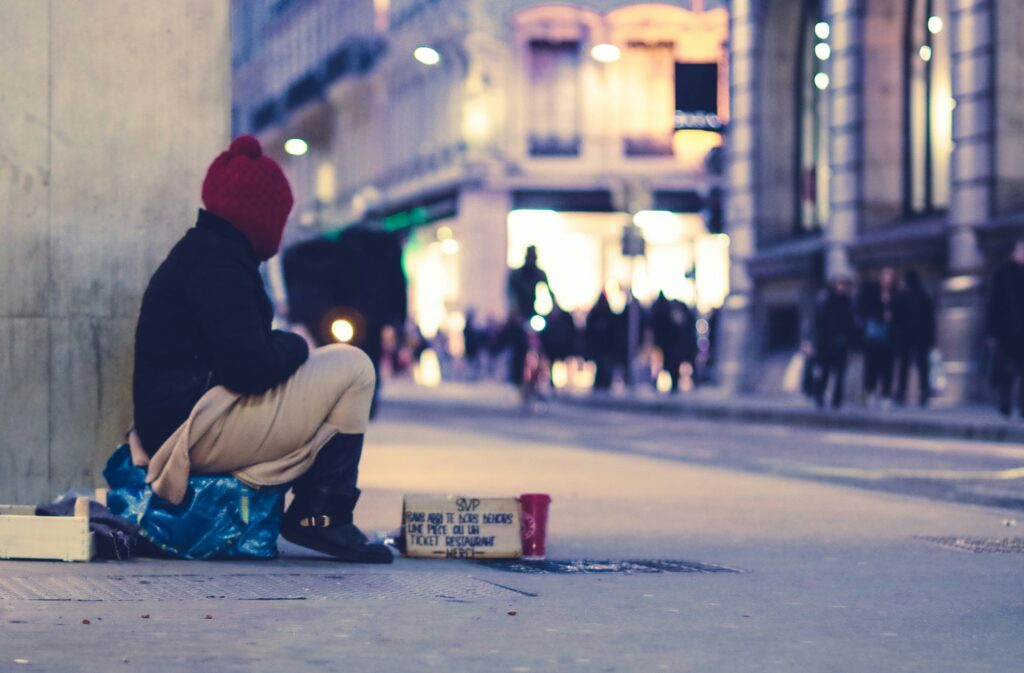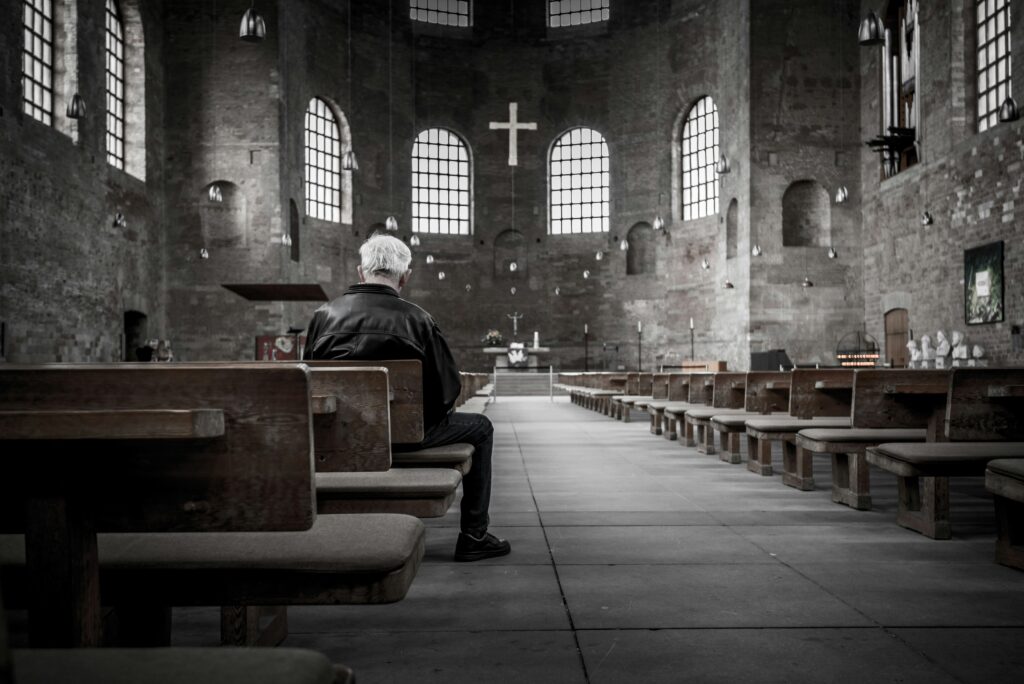
Building the Common Good
As Western society shows so many signs of disintegration, Jenny Sinclair outlines how we can work together to build a society in which everyone can flourish.
About 13 years ago, I began to sense the early signs of the change of era, the signs of social, economic and cultural unravelling that are now becoming clear to everyone. I was seeing poor communities abandoned, the gap between ordinary people and elites widening, the risk of social unrest.
I felt agitated about the state of the Church and its capacity to make an effective Christian response – it had lost confidence and needed help. I felt God was nagging me. I say nagging because at first I was like – this really isn’t what I want to be doing, Lord! – but it just started happening and people joined me and Together for the Common Good emerged.
We focused on the vocation of the Church and examined the inheritance of the Church in England and lessons to be learned. I saw the potential of the People of God as catalysts for spiritual and civic renewal.
Catholic Social Thought
Along the way, in 2012, I discovered the tradition of Catholic Social Thought. It’s a cliche to say it’s the Church’s best kept secret, but really – even though I had converted to Catholicism in 1988 no one had ever mentioned it!
This body of thinking is concerned with everything about the human person – the family, the dignity of work, the economy, social peace, bioethics, migration, nature, war, and much more.
At the heart of Catholic Social Thought is a notion of justice that invites us to look at what is happening to people, to relationships, communities, in concrete terms – right here, where we are.
It identifies three sources of power: the earthly powers of money and state, and the relational, transcendent power of human beings in relationship with each other and with God.
Although the churches were struggling, I saw that Catholic Social Thought had potential to build up the confidence of the Christian imagination. But it was not well understood – it was either stuck in the academy, or oversimplified, or co–opted into partisan politics.
So at Together for the Common Good, we have been trying to make it better understood. We are dedicated to civic and spiritual renewal and we focus on those aspects of Catholic Social Teaching that relate to that. We resource people through events, podcast, resources, website, a schools programme, through advising and building strategic relationships across the Christian traditions and beyond.
The Common Good
One of the key principles is the Common Good. The classic definition refers to ‘the set of social conditions which allow people to flourish’. But it is not utopian, it cannot by definition be imposed, it is never coercive. It is not something that results from government policy, although this can help.
Some think you just have to insert the right policy and out pops the Common Good. There’s more to it than that.
The Common Good is what happens between human beings in relationship. It is about human agency. It is messier and more beautifully human than any utopia could be.
And so we define it like this: “The Common Good is the shared life of a society in which everyone can flourish – as we act together in different ways that all contribute towards that goal, enabled by social conditions that mean every single person can participate. We create these conditions and pursue that goal by working together across our differences, each of us taking responsibility, according to our calling and ability.”

So not only is the Common Good relational, it’s practical, it requires our involvement. It can be gentle, and at other times it can be challenging. To build a common good, it can require deliberation and sometimes hard negotiation.
The Common Good involves recognition, not just of a settled pluralism of identities and interests and diversity of opinion, but also recognition that people have traditions and experiences, histories that are related to class, race, families and place.
There is currently a lot of focus on identity but without attending to difference in terms of class, education, economic circumstances, we get a distorted picture. Our country, our cities, even our neighbourhoods, have become so fragmented that our perception of what is going on often depends on who we know.
But as Christians we are called to bridge divides and refuse the temptation to be tribal. We can intentionally broaden our friendships.
The Common Good is about the balancing of interests without excluding anyone, to prevent the dominance of one group over others. It is about building a shared life in which everyone participates and takes responsibility.
Justice
So we need to think about building the Common Good as a way of responding to the challenges we face. To do this we need to think about justice. But we need to be careful that we think about justice in a way that is consistent with Catholic Social Teaching.
Our tradition of justice is different from other philosophies of justice – it is not libertarian, neither is it welfarist nor utilitarian. Ours is a relational form of justice, rooted in the ancient rabbinical tradition where its meaning is about right relationship – with God and with each other.
Just to illustrate. Did you know the meaning of lending money in Hebrew – kesef talve – is close to ‘accompaniment’? Lending as accompaniment. How different is that from the way we understand how to address money, poverty and debt today, where ‘help’ looks like cash being transferred to someone’s bank account and leaves them alone in their flat, on their own. A utilitarian, welfarist model of justice that relies on systems that minimise human connection.

In God’s economy, if I’m having a hard time, you’re to walk in relationship with me – accompany me until I get back on my feet – for as long as it takes. It may involve money, or helping me get a job. Not just giving me cash and leaving me alone.
The Catholic Social Justice tradition is anchored in God’s economy of mutual obligation and right relationship. At a time of increasing global instability, understanding this relational posture is critical. Local, embedded, embodied, grounded relationships are going to be more and more important.
The treasure of the Church
And those relationships should start with our neighbours who are poor. The preferential option for the poor is not optional.
People who are poor are meant to be the treasure of the Church. Not an afterthought.
Pope Francis says it is especially important that we live in solidarity through genuine relationships. He goes further, he says the Church needs to be evangelised by the poor.
What does he mean? He says someone who is poor has a sense of their need for others and for God that the affluent and the busy so easily lose. This is the great mystery at the heart of God’s special love for the poor.
He goes further. He says we must stop outsourcing and take responsibility. He says solutions are not to be found in activism or welfarism. This is not an argument against the welfare state but it is a critique of how it works.
Changing Church
But can the Church fulfil God’s mission? Sometimes the prospects don’t look too good, do they? While parts of the body of Christ are growing globally, many of the institutional churches in the West are in a state of collapse. The Church is undergoing profound change.
What is not working is what I’d call the “consumerist” model of church. You know – where you go to church, you get something and you go home again. Where people sit in the same pews year after year and don’t know each other.

I knew a woman who was in terrible debt for two years. She told me she went to Mass every week and didn’t tell a soul. And nobody asked. An individualistic model of Church which failed to understand its vocation.
Churches seeing growth – and I’ve seen them – are relational, they offer a sense of family, they’re attentive to the Holy Spirit, living in friendship alongside their neighbours, they accompany people in the struggles and celebrations of everyday life, and they make it easy to step over the threshold. Especially for people in poor communities who often feel that church is a middle class organisation.
Mission has too often been ecclesial–centric rather than facing outward to the neighbourhood; the Church has not always fulfilled her calling to give herself away for the sake of the world but has sometimes instead sought to shore up her own influence and power.
Other times the Church has gone the other way, been influenced by worldviews that undermine Christianity, sought to please secular society too much, in the process losing her identity.
This period is distressing for some. But God is at work. This is a great and wonderful time to be alive: sure, a time of testing – testing us all, clergy and laity, a testing what it means to be God’s people.
This is an edited and abridged version of the first part of an address which Jenny delivered at a mission day organised by the Catholic diocese of Clinton, Bristol, England, on 18 May 2024. For the second part of this article, click here. For the full version, see here. It is republished in Adamah with the author’s permission. To listen to the T4CG podcasts, click here.
Like what you’ve read? Consider supporting the work of Adamah by making a donation and help us keep exploring life’s big (and not so big) issues!
Jenny Sinclair
Jenny Sinclair is founder and director of Together for the Common Good, a Christian charity dedicated to spiritual and civic renewal. Drawing on Catholic Social Thought, she works with leaders, churches and schools, helping them make sense of this time of seismic change and discern their unique vocation for the common good. www.togetherforthecommongood.co.uk

